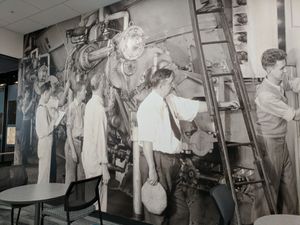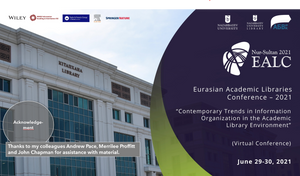Geoff Harder has made a very nice presentation about RSS available [pdf]. He refers to NADD (Nerd Attention Deficiency Disorder) and RII (Repetitive Information Injury) 😉 The slides are well done: it is a pity that they are only available in PDF.
RSS is everywhere, and is consumed both by people (in their aggregators etc) and by applications (as a simple machine to machine tissue).
Thinking about how people consume feeds, I have around 150 feeds in my aggregator on my work machine – I could easily have a lot more, but there does not seem much point. I really should have a lot less: I don’t read all these ones. In fact, there are many I have not looked at for months. Life is simply too short. I will skim a selection of the full range every now and then. I have about 40 on the family machine, with some overlap with work. I didn’t take to Bloglines. I find the RSS aggregator a very inefficient way of doing things. I agree with Phil Wainewright:
When I wrote of the Death of the RSS reader last week, I little realized just how many people have given up on following RSS feeds. Now the slashdot hordes have had their say, it’s all too plain that RSS as currently delivered is fatally flawed. [� It’s time to bury RSS | Software as services | ZDNet.com]
He goes on to say why and reference some other discussion.
Slightly less than half of my subscriptions are directly library related. The others are largely a mixture of technology, business, and academic.
In terms of where I ‘spend’ my attention (and attention is what so much is now about) I tend to have a few favorites, thirty or so, at any one time, and these change with my interests. Because of this flux, I find it difficult answering questions about which blogs I read or my favorites: they come and go. There are very few staples: one example is Catalogablog. So although I will already have seen some of what gets posted there, there is enough that I have not seen, and it is central enough to my work interests, to make it important to keep watching it. David Bigwood does a very nice job.
Beyond the staples, favorites gravitate towards reflective voices which write interestingly about topics I should be interested in. Examples of the blogs I am currently reading regularly are Rough Type, Software as services, and Bubblegeneration. Here is Rough Type (Nicholas Carr) on open source software, Software as Services (Phil Wainewright) on the ‘three layers of Web 3.0‘, and Bubblegeneration (Umair Haique) on the attention economy.
And while talking about reflective voices writing interestingly, here is another note about my colleague Stu Weibel’s blog. Stu will be based at the University of Washington for a while, working on the topic of identifiers. We are grateful to the iSchool and Microsoft for supporting this venture. If Stu keeps writing as engagingly as in the entries describing his trip and arrival it might be worth subscribing to his feed 😉
Geoff Harder link via The Distant Librarian.
Related entries:



